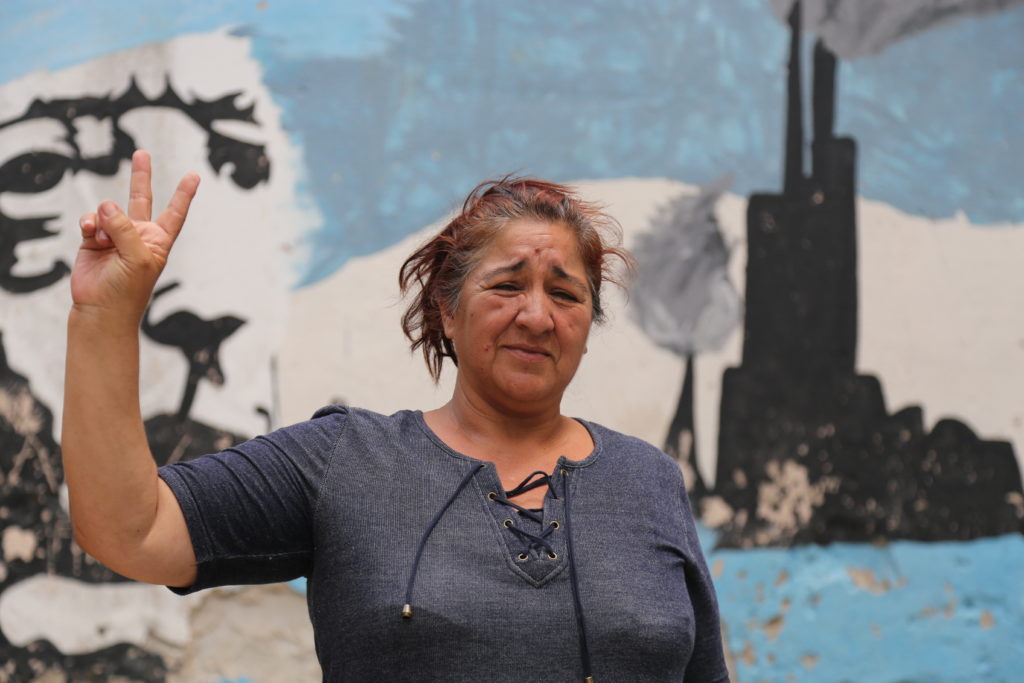
Sandra Garcia is one part counselor, one part community leader, and one part administrator. Or at least the latter is her official title, though she does so much more than that. She is the very heart and soul of the local state-run clinic and community center in the poor Buenos Aires neighborhood of Dock Sud.
The blue and white building home to the clinic and center stands on the corner. A few kids hang out on the playground outside. A sea of cars rumble over the elevated highway a block away. The decade-old center is a one-stop shop for many of the residents’ needs. They come to get a new ID card, start a cooperative, or see a doctor, gynecologist, or therapist.
“Listen, you’re gonna have to fight,” Garcia tells a thin woman who is getting her life back together after leaving an abusive husband.
“It’s not easy,” she says. “There’s a long road ahead, but you can do it. I know, I’ve been there.”
And she has. Garcia’s father was an alcoholic. She had her first child at a very young age and was a single mother for years. She never finished high school.
“I have learned by experience,” she says.
For many in her community, Garcia is the only thing between a solution and falling through the cracks. But it’s getting harder each day for her to do her job.
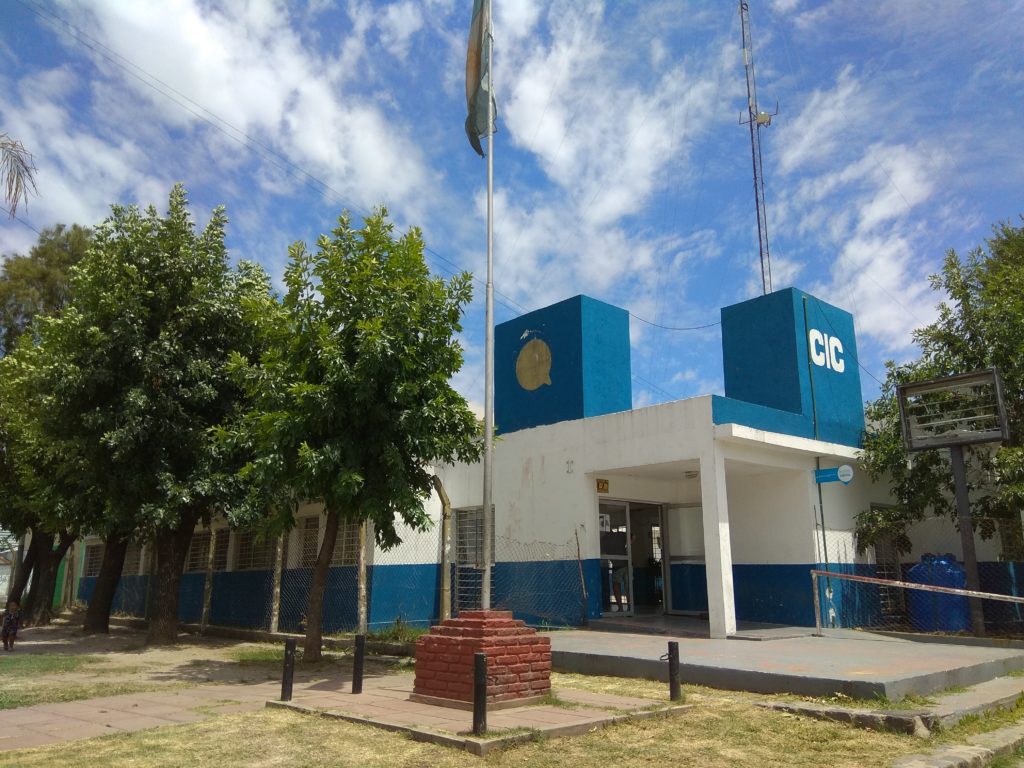
Since the 1940s, Argentina has had free universal public healthcare for all of its citizens. But under the government of conservative president Mauricio Macri — who was elected in late 2015 — budget cuts and layoffs have riddled the public health sector.
In mid-January, armed police officers occupied the Posadas Hospital to escort out 100 medical health professionals who had been fired from their posts. Two weeks later, these workers marched through the streets of Buenos Aires against the layoffs. Hundreds of thousands have lost their jobs under the Macri government. In late January, Macri announced further layoffs and the freezing of salaries in the public sector.
Investments in public health, particularly for low-income communities and women and children, had risen under the previous leftist governments of Cristina Fernández and Néstor Kirchner.
But those programs are now being rolled back. As of last year, some community doctors had gone for months without being paid.
Garcia’s clinic is having to make do with less. Much less.
She sits behind a desk in a small room adjacent to the reception area. A pair of filing cabinets occupy a space in the corner. Paint peals falls from the white walls. She speaks slowly, deliberately, shaking her head, lamenting the current lack of resources.
Monthly shipments of medicine from the federal government have been reduced by two thirds. Some more expensive medicine isn’t arriving at all. She explains how one patient with a degenerative bone disease has had to do without his necessary meds for months.
The clinic has been affected by the city’s rolling blackouts and not long ago it was without water for several days.
Garcia says that in the past, if someone came to their clinic needing more advanced medical or psychiatric care, she could just pick up a phone, and call the Casa Rosada — the office of the president.
“They would sort it out immediately,” she says. “Not anymore.”
Now she gets stonewalled, or they ask her to come in to make the request in person.
When times get desperate, Garcia hits the streets to find solutions for the patients that come seeking help. The local municipal government in Avellaneda is providing the clinic with necessary medicine and supplies that the federal government is not.
But the community clinics are not the only areas where budgets cuts are taking their toll.
On an afternoon in late January, shock troops and armored police vehicles were called out to break up a protest blocking 9 de Julio, the iconic 18-lane avenue running through the center of Buenos Aires. Hundreds of HIV activists had marched on the Health Ministry there to demand that it take immediate action to resolve the shortage in antiviral medicine.
In Argentina, the state provides free necessary antiviral drugs for everyone with HIV. Roughly 122,000 people in the country have the disease, but well over half have no private insurance and depend on public care.
The previous week, the Ministry of Health had announced that HIV medicine would be delayed for the foreseeable future and that each Argentine province should do what it could to acquire the necessary drugs.
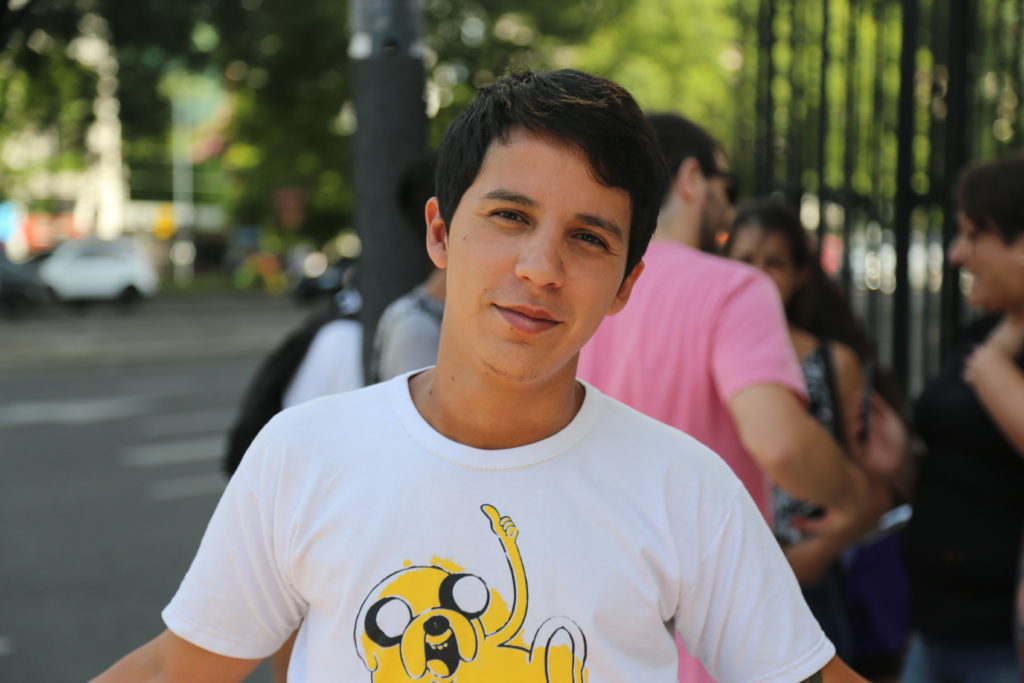
“What happens when you get to the hospital and they don’t have your medicine? You can’t interrupt your treatment,” says Sebastian Cabral, a 27-year-old organizer with the Argentine Network of HIV Positive Youth, who has been living with the disease for a year and a half.
Cabral has not had to do without his medicine — yet. But he knows others who have, as some drugs have run scarce.
“It’s one thing in Buenos Aires, a place where health care is fairly accessible, but the situation changes completely when you are in a town in the middle of the country, where you have to travel 100 kilometers to go to a hospital,” he says. “These are people’s lives.”
Cabral explains that the most concerning issue is the shortage of drugs ensuring that the virus is not transmitted from mother to infant baby.
“It’s a little tiny person that depends on the Ministry of Health. If they can’t acquire this medicine, then you are putting the life of this little child at risk,” he says.
Also disturbing to Cabral and many others is what they say is a push by the Macri government to privatize the country’s healthcare system.
In October, president Macri announced a new Universal Health Plan — abbreviated CUS, by its Spanish insignia.
“The goal of the CUS is for everyone, especially the most vulnerable, to have access to the quality services they need throughout their life cycle,” said Macri at the time.
The details are hard to nail down. Not even members of the Ministry of Health are clear about when and how the program is supposed to be rolled out. And what exactly it’s supposed to do. Advertisements for the program feature a pair of blue and white cards — Universal Health Plan written in large letters on the left corner. They look like debit or prepaid cards. That is exactly what unions and progressive activists fear.
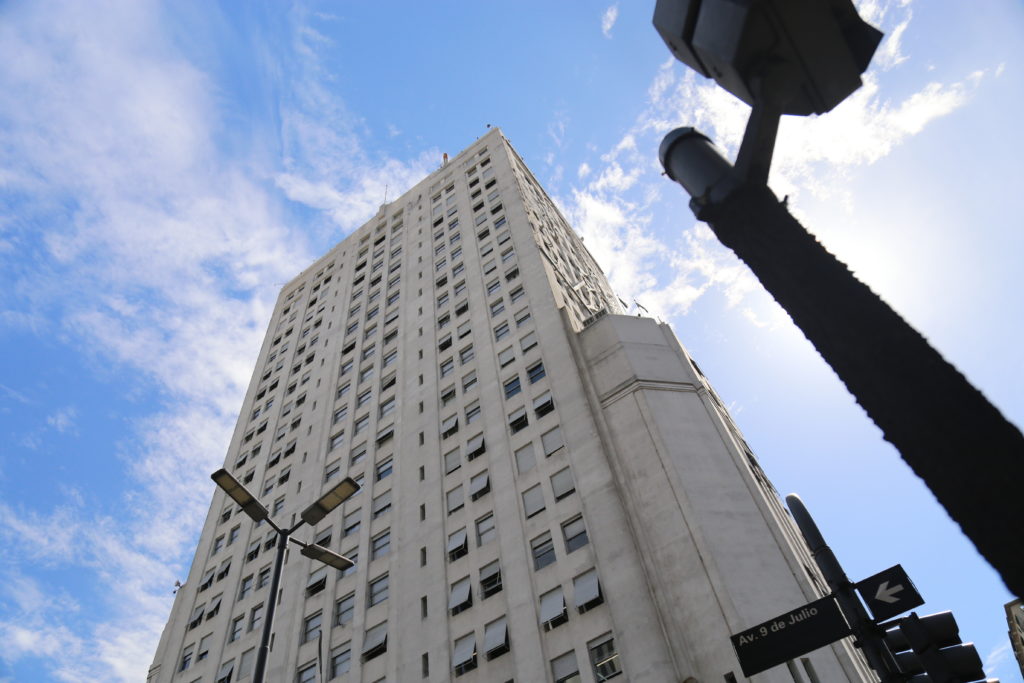
“These are the first steps to set up a system of patient identification. A true electronic poverty card,” Guillermo Pacagnini, the Secretary General of the Buenos Aires Union of Health Professionals, told the Argentina daily Clarín when Macri’s plan was announced. “With the so-called CUS, the government is hoping to reduce the budget and substitute the government-funded universal health system, with health insurance for the poor, favoring fees and outsourcing.”
The common understanding among many Argentines, including Cabral and Garcia, is that the new system will push people toward using the private sector while the public health care system is increasingly defunded. Everyone will be issued a medical card, which will work like a prepaid calling card, cell phone, or debit card. But when the allotted funds have run out, each individual will have to put more money on their card to see their doctor or access care.
But according to the man largely responsible for the rollout so far, “that’s false.”
“I don’t know where they get this idea,” says Rodolfo Montero, the chief of staff for the Mendoza province Ministry of Health. “There is no card. There is no money charged to a card. None of that is true. This is not about privatizing. This is strengthening the public sector.”
The Mendoza department of Guaymallén — with a population of roughly 300,000 — was chosen as the first location to rollout CUS. By the end of the year, says Montero, most of the province will be online. The rest of the country will soon follow.
But what is CUS, exactly?
According to Montero, the idea is to get rid of the never-ending piles of paper records and digitize the medical histories for every Argentine. Then the goal is to make this medical record accessible across a universal system in both the public and private sector, in order to easily access care wherever it may be found.
The next step, says Montero, “is to be explicit about what we are going to cover.”
“I have this amount of resources to apply to the health system. How do we want to spend it? And how can we make that the most effective?” he says.
This, in effect, will likely restrict coverage. But for Montero, coverage is already restricted by long lines or wait times, or denying things in some places, or not offering services in more isolated regions of the country.
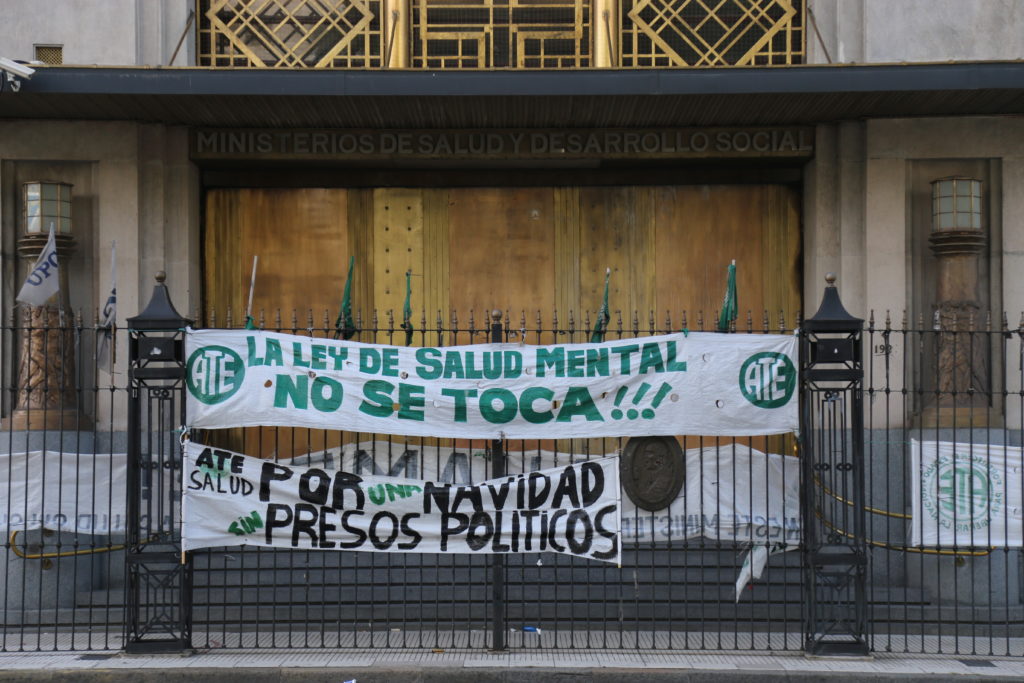
That may all be true, but it does little to assuage the concerns of people like Garcia, who have spent years serving their community, and are seeing health services deteriorate all around her, even before the implementation of the new system.
But Garcia herself — who, for years, lived in a make-shift home beneath a highway overpass — is having trouble paying the bills. Her salary isn’t enough to make ends meet, and by the end of the month she is usually pounding the pavement to figure out how she is going to put together the next meal for her family.
In spite of everything, Garcia says she’s not afraid.
“We are not going to let anything come and effect our work,” she says. This is a daily struggle for Garcia and those on the front lines of healthcare in Argentina. And it’s one that’s not getting any easier.
“We have to be strong,” she says. “We have to be ready to fight for our rights.”
Michael Fox is an independent multimedia journalist. More of his work can be found at his website, www.mfox.us.
